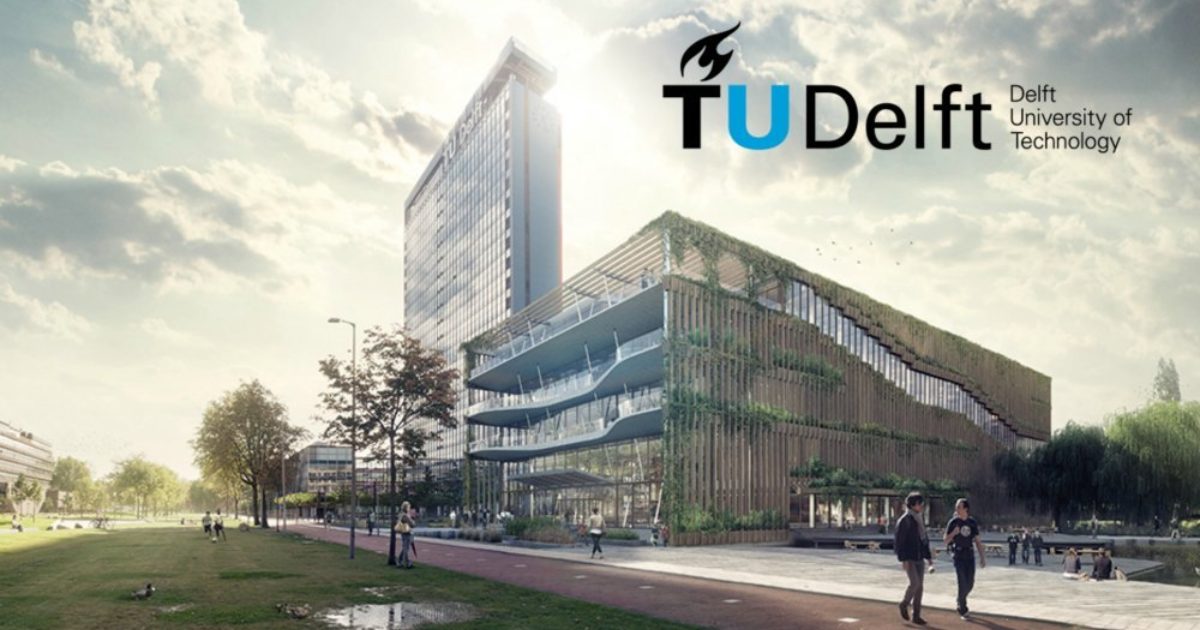TU Delft: TU Delft research partner at solar parking lot in Dronten
A parking lot with solar panels where renewable energy generation, electric charging and energy storage are cleverly integrated. In the municipality of Dronten, the official opening of a parking lot with 1,100 solar panels is taking place today. In combination with a large battery, the solar parking place will make the town hall energy-neutral. TU Delft researcher Rishabh Gotghe and master’s student Kaja Tegtmeijer are developing a dashboard for this project, with which they can accurately monitor the saved CO2 emissions of the terrain.
As of today, 120 cars can park at the Dronten city hall under a canopy made entirely of solar panels. There are 16 charging stations for electric cars. In order to provide those cars with sustainable power even during cloudy days, a large battery will store the peaks in electric power. Researcher Rishabh Gotghe, together with master student Kaja Tegtmeijer, is developing a dashboard to provide insight into the yield of the solar panels, the functioning of the battery. Gotghe: ‘Previously, the number of solar panels was used to calculate the amount of CO2 saved. In this project, we are really looking at the combination of the output of the solar panels and the functioning of the battery, in order to better determine the CO2 savings.
Kaja Tegtmeijer: ‘We will monitor in real time how much energy is used in the city hall and how much of that energy is generated by the solar panels. We use a new method for this, which has not yet been used anywhere for this practice.’ In this way the stakeholders in the project can monitor how well the panels do their work, in combination with the battery. Kaja is also going to process the data in a different way, in order to predict how much energy will have been saved by 2030 with this project. By accurately demonstrating how much energy will be saved, the research can inspire other governments, municipalities and companies to construct solar parking lots in the future.
The parking lot in Dronten is part of the larger PowerParking project, which Rishabh Gotghe joined as a researcher from the beginning. The idea behind this project is to use parking spaces as efficiently as possible, by equipping them with solar panels and using the parked, electric cars as batteries. This can be done by allowing the electric cars, which are fully charged with solar energy, to feed their electricity back into the grid when needed. Rishabh Ghotge: “There is more potential in the batteries of cars than just their use as storage capacity for transportation. You can discharge the batteries, when the cars are parked, when the energy is needed in the nearby environment.’ In Dronten, the cars will not yet deliver their energy back to the grid. The current generation of electric cars is not yet suitable for this. The large battery replaces this function to still provide the town hall with energy when it is cloudy weather.
The Green Village
On the TU Delft campus, The Green Village is an important testing ground for the PowerParking project. Gotghe has a small version of the solar parking lot there, where two cars can park and charge. On that small scale, it is possible to test what exactly happens when you want to charge an electric car, but also use it as a battery. Gotghe: “We need to coordinate the electrical currents properly and develop the right computer scripts for that. The parking lot has to know when to charge, or supply power back.” In this way, Gothghe is working on the development of future solar parking lots.
Partners
The PowerParking project is an EFRO (European Regional Development Fund) project in which various partners are collaborating: Flevoland province, Dronten municipality, TU Delft, Eneco, Lelystad Airport, Lelystad Airport Businesspark, Alfen and Pontis Engineering. The ERDF project is being financed from the Opportunities for West II program, with co-financing from the Ministry of Economic Affairs and Climate, Flevoland Province and all partners.

